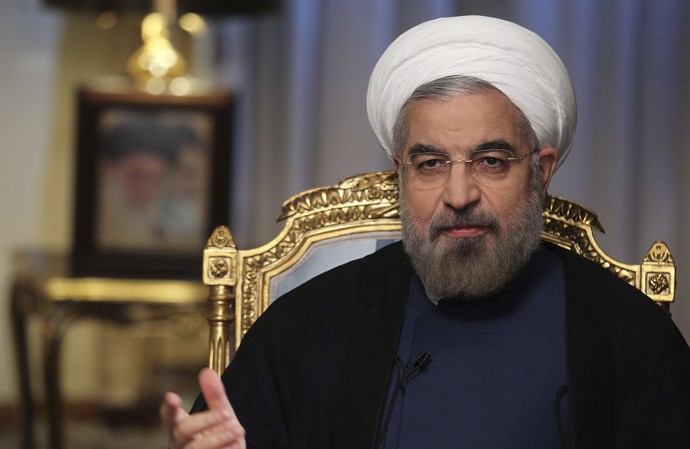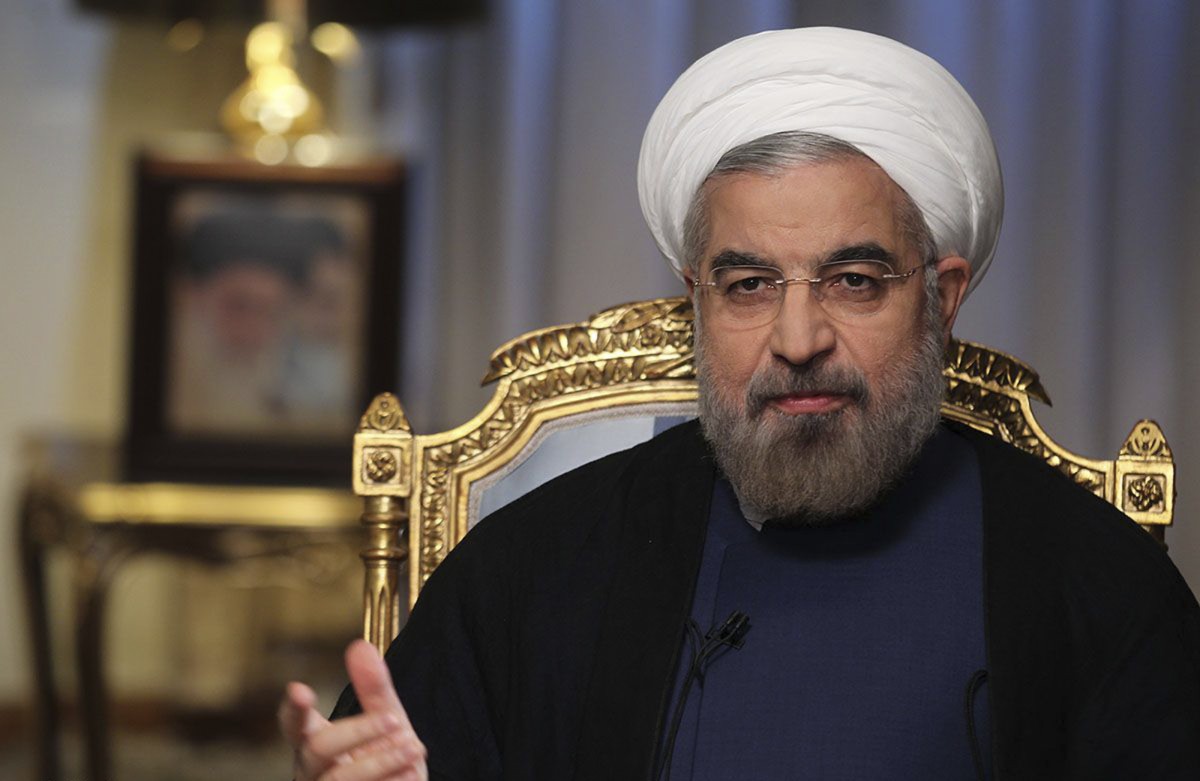
In recent days, Iranian President Hassan Rouhani has made motions to suggest that his assertion that Iran is now less conservative under his administration wasn’t merely talk. On Wednesday, Rouhani, in an interview with State TV, defended the nuclear talks Iran is currently engaged in with the United States, the United Kingdom, France, Germany, China and Russia.
Iran is currently under a six-month deal with the nations in which Iran will receive some relief from the economic and trade sanctions the nation was under — as well as access to some of the nation’s frozen offshore assets. In exchange, Iran must sign a permanent agreement consenting to end its alleged nuclear weapon program and agreeing that the nation will not develop nuclear weapons in the future. Rouhani, suggested that the deal is Iran’s first success in cooperating with the world and that the pursuit of this deal is a balance of prudence and moderation.
In the same interview, Rohani — in a rare expression of regret for an Iranian leader — apologized for the difficulties with the distribution of food rations to the poor. Reports have indicated that three people died waiting in subzero weather for the rations. The rations program — established under Mahmoud Ahmadinejad for government workers — were expanded under Rouhani for the nation’s 17 million poor, slightly more than a fifth of the nation’s total population. Runaway inflation — caused by the economic sanctions, has made food and everyday supplies too expensive for many Iranians.
On Thursday, Rouhani donated an estimated $400,000 to Iran’s only Jewish hospital. Confirming the administration’s commitment toward uniting all ethnicities and religions, Rouhani made his second outreach effort since taking office, even taking the time to wish all Jews “a bless Rosh Hashanah” on Twitter. This is a marked reversal from the position his predecessor, Ahmadinejad, took, calling for the “elimination of the Zionist regime,” denying the Holocaust and calling for Israel “to be wiped off the map.”
Prior to this, Iran’s foreign minister, Mohammad Javad Zari, suggested that, one day, it may be feasible to believe that Iran would formally recognize Israel. “After the problem with the Palestinians is resolved, the conditions that will enable recognition of the State of Israel will be established,” he said.
During his interview, Rouhani promised that all Iranians will have universal health care through a nationwide health insurance program by 2018, with the nation’s five uninsured children being the first to be insured under the state. Rouhani made reference of the American national healthcare initiative via tweet after the interview.
“Gov will extend medical insurance to all Iranians. First step will be to cover 5mn uninsured Iranians by the social safety net #RouhaniCare,” Rouhani’s English-language Twitter account posted Feb. 5.
He has indicated that the initiative will be paid in part with cuts to government subsidies.
“Our people face a number of difficulties in their health protection and when they enter a state-run hospital they usually have to obtain their medicine, tests and medical equipment from other places,” Rouhani said in the interview. “We have to make sure our hospitals can give people all the services they need so that they are not left confused.”
While it is unclear if all of these movements will work towards convincing the rest of the world that Iran is friendlier than it once was, his talks of possible accommodation with the West and changes in the nation’s social fabric have angered many of Iran’s conservatives. However, the Iranian Supreme Leader Ali Khamenei has expressed support for most of Rouhani’s reforms.


